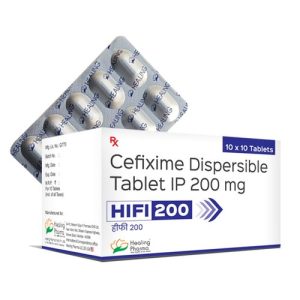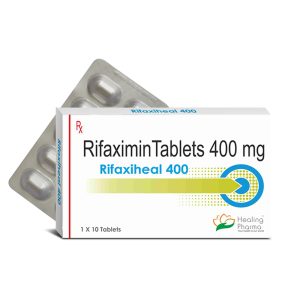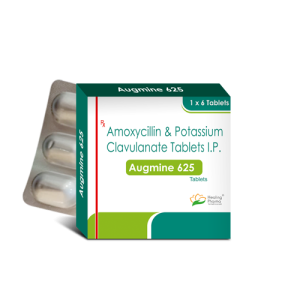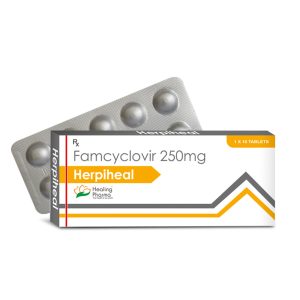| Brand | Azeetop |
| Dosage | 500 mg |
| Tablets in a Strip | 5 |
| Packaging Type | Blister |
| Prescription Required | Yes |
| Packaging Size | 5 Tablets |
Azithromycin (Azeetop-500) 500 mg tablet is a broad-spectrum macrolide antibiotic used to treat a wide variety of bacterial infections. It is primarily used to treat respiratory and genitourinary infections and may be used for some sexually transmitted and enteric infections.
Drug =Azithromycin
Number of Pills Per Product = 5
Strength = 500 mg
Manufacturer = Healing Pharma
How To Take
This medicine is available as a tablet, capsule, or as an oral suspension.
If you are taking the capsule or the extended-release suspension, take it on an empty stomach at least 1 hour before or 2 hours after meals.
If you are taking the tablet or the immediate-release suspension, you may take it with or without food. If you experience any stomach discomfort, take it with food.
If you are taking an oral suspension, shake the bottle well before taking it to ensure that the liquid is evenly mixed. Use the measuring spoon or cup provided to measure your dose.
Take Azithromycin at regular intervals. Complete the entire course of the medicine. Try to take it at the same time each day.
Take Azithromycin precisely as directed by your doctor or according to the instructions on the label. Do not take more or less than instructed by your doctor.
Dosage of Azithromycin (Azeetop-500) 500 mg
Respiratory tract infections, skin, and soft tissue infections: As tab/cap/immediate release suspension: 500 mg/day for 3 days or 500 mg as a single dose on day 1, then 250 mg/day on days 2-5.
Uncomplicated genital infections due to Chlamydia trachomatis, chancroid: 1 g as a single dose.
Uncomplicated gonorrhea: 1 g or 2 g as a single dose, combined with ceftriaxone.
Community-acquired pneumonia: As tab/cap/immediate release suspension: 500 mg on day 1, then 250 mg once daily on days 2-5. As extended-release suspension: 2 g as a single dose.
Acute bacterial sinusitis: As tab/cap/ immediate release suspension: 500 mg once daily for 3 days. As extended-release suspension: 2 g as a single dose.
Prophylaxis of disseminated Mycobacterium avium complex (MAC) infections: 1.2 g once weekly.
Missed Dose
If you miss a dose, skip the missed dose and return to your normal dosing schedule. If you often forget to take your medicine, let your doctor and pharmacist know.
Do not double a dose under any circumstances.
Overdose of Azithromycin (Azeetop-500) 500 mg
Signs of overdose may include the following:
- Diarrhea
- Reversible hearing loss
- Severe nausea and vomiting
Seek medical help immediately.
Contraindications
People with the following medical conditions should not take Azithromycin:
- Hypersensitivity to macrolide antibiotics
- History of hepatic dysfunction/cholestatic jaundice following previous antibiotic use
Side Effects
Azithromycin may have the following side effects:
- Myasthenia gravis
- Deafness
- Pruritus
- Burning
- Stinging of the eye or ocular discomfort
- Sticky eye sensation
- Foreign body sensation (ophthalmic)
- Diarrhea
- Vomiting
- Abdominal pain
- Nausea
- Flatulence
- Dyspepsia
- Dysgeusia
- Injection site pain
- Fatigue
- Decreased lymphocyte count and blood bicarbonate
- Increased eosinophil count, basophils, monocytes and neutrophils
- Anorexia
- Arthralgia
- Headache
- Dizziness
- Paraesthesia
- Rash
Potentially Fatal
- Rarely, severe hypersensitivity reactions (e.g., anaphylaxis, angioedema, Stevens-Johnson syndrome, toxic epidermal necrolysis, acute generalized exanthematous pustulosis drug reaction with eosinophilia and systemic symptoms)
- Fulminant hepatitis leading to liver failure
- Prolonged cardiac repolarizationand QT interval
- Cardiac arrhythmia
- Torsades de pointes
- Clostridium difficile associated diarrhea (CDAD)
Warnings
Do not use Azithromycin in people with the following conditions:
- Allergic reactions to similar medicines such as clarithromycin, erythromycin, or any other macrolide antibiotics.
- History of liver disease due to previous antibiotic use
Inform your doctor and pharmacist if you are taking any of these medicines:
- Digoxin
- Amiodarone
- Quinidine
- Terfenadine
- Ciclosporin
- Warfarin
- Colchicine
- Pimozide
- Cisapride
Inform your doctor and pharmacist if you are taking any other medicines, including herbal tonics such as traditional Chinese medicines, supplements, and nonprescription medicines.
This list does not include all medicines that may interact with Azithromycin.
How Does Azithromycin (Azeetop-500) 500 mg Work?
Azithromycin is an azalide macrolide, an antibacterial drug that inhibits RNA-dependent protein synthesis by binding to the 50s ribosomal subunit, thereby preventing the translocation of peptide chains.
Uses
Azithromycin is used to treat the following conditions:
- Community-acquired pneumonia
- Pelvic inflammatory disease
- Bacterial conjunctivitis
- Chancroid
- Uncomplicated genital infections due to Chlamydia trachomatis
- Prophylaxis of disseminated Mycobacterium avium complex (MAC) infections
- Acute otitis media
- Acute bacterial sinusitis
- Respiratory tract infections
- Skin and soft tissue infections
- Uncomplicated gonorrhea
- Pharyngitis
- Tonsillitis
- Community-acquired pneumonia
Special Precautions and Connected Warnings
Take special precautions if you have the following conditions:
- Myasthenia gravis
- Electrolyte disturbance particularly hypokalemia and hypomagnesemia
- Bradycardia
- Cardiac arrhythmia
- Severe cardiac insufficiency
- Congenital or documented QT prolongation
- History of torsades de pointes
- Severe renal (GFR <10 mL/min) impairment
- Hepatic impairment
- Children
- Pregnancy and lactation
- Azithromycin should not be given long-term to prevent bronchiolitis obliterans syndrome in patients with cancers of the blood or lymph nodes who undergo a hematopoietic stem cell transplant.
- Avoid alcohol.
Storage Conditions
- Store below 30°C. Protect from light.
- Store in a cool, dry place away from the reach of children.
- Do not use azithromycin that is expired or out of date.







